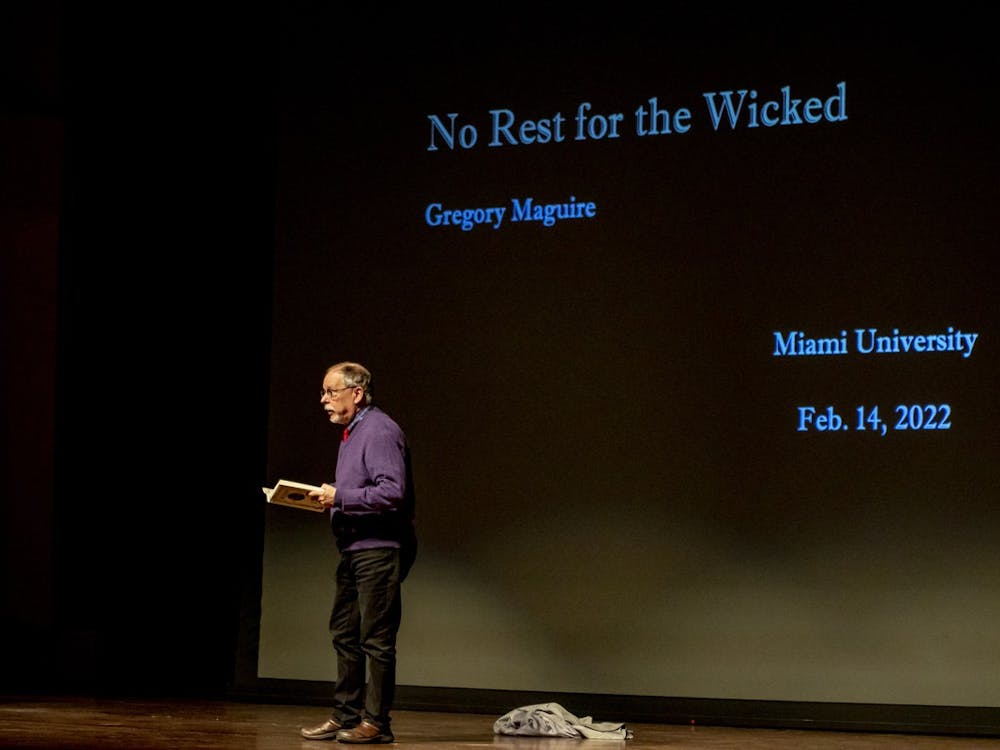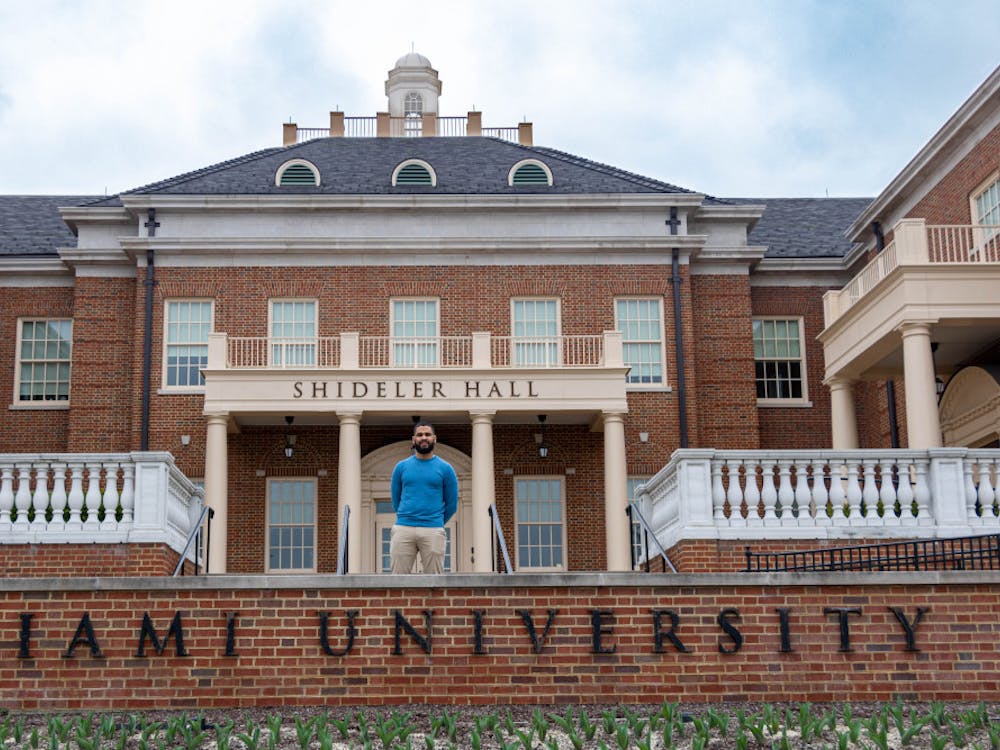By Emily Williams, Senior Staff Writer
First-years William Armour and Samir Lal defaced a bulletin board in Wells Hall with a slew of offensive graffiti last Saturday, April 4. By Wednesday, neither were students at Miami University.
The U.S. Department of Education has reported an increase in racial complaints on college campuses; there were 555 complaints filed in 2009, which increased to 939 in 2014. Students at several universities, including Oklahoma University and Bucknell University in March, were recently expelled over issues of racist speech.
On a Friday evening broadcast March 20, Bucknell University's radio station (WVBU) aired three students who used racially offensive language. A prisoner at the federal penitentiary in Lewisburg, Pennsylvania, heard their statements and reported them to a prisoner advocacy group who passed the information along to the university.
By the following Monday, the three students were expelled. The university's president, John Bravman, addressed the university regarding the incident in an assembly the following day.
Although many people have praised the swift responses made by college administrators, Oklahoma University's president, David Boren, has recently been accused of violating the students' freedom of speech.
Three days after a video surfaced revealing members of the university's chapter of Sigma Alpha Epsilon fraternity singing an explicit, racist song on a bus, Boren expelled two of the fraternity members.
Those who believe the First Amendment protects speech even if it is considered racist, sexist or otherwise offensive, have argued that Boren, a former senator and governor of the state, was in the wrong when he expelled those students.
Unlike those found guilty in the Bucknell and Oklahoma cases, Armour and Lal withdrew from Miami, an action which the university's Code of Conduct refers to as a "formal administrative procedure," and requires the student file a withdrawal form in the Oxford Office of the University Registrar.
According to Susan Vaughn, the director of Miami's Office of Ethics and Student Conflict Resolution (OESCR), if a student withdraws from the university with a disciplinary action still pending, a notation is placed on their transcript until the case is resolved.
In contrast to a dismissal, withdrawing is a voluntary action. A dismissal from the university can be made only after the university has gathered the facts of a case through its disciplinary process.
Students who are suspended are administratively withdrawn, said Vaughn, meaning the student must leave the university for at least a semester. If a student decides to not return to the university, they do not need to withdraw after the suspension.
Enjoy what you're reading?
Signup for our newsletter
Last year, the university issued two dismissals and 50 suspensions. As of Feb. 28, the university had suspended 29 students and dismissed one during the 2014-2015 academic year.
Of last year's suspensions and dismissals, many of them were the result of academic dishonesty. From the 258 cases of academic dishonesty reported, 186 students were found responsible.
From those found responsible, 10 students were suspended - making up 20 percent of the university's total suspensions for the year - and one was dismissed. The only dismissal issued during this academic year has been on account of academic dishonesty.
According to Brenda Quaye, Miami's Coordinator for Academic Integrity, about half of the cases are coming out of 100-level classes, primarily from first- and secondyear students.
"For a lot of our students, it really comes down to time management," said Quaye.
Quaye said many instances of plagiarism, which account for about 55 percent of academic dishonesty cases, occur because students do not allow themselves enough time to fully grasp the information and interpret it in their own words.
Many students are not even aware that they have committed plagiarism until they are caught.
"We really do use the first offense as a learning opportunity for the student," Quaye said.
A student must be found guilty of academic dishonesty twice before being suspended. If a student commits another offense after the suspension, the student is then dismissed.
In President David Hodge's email following last week's graffiti incident, he stressed the importance of directly addressing any actions that violate Miami's values.
"As a community, we must stand together to confront behavior that violates the values and beliefs we hold, and work to create a culture built upon the respect and trust called for in our Code of Love and Honor."




